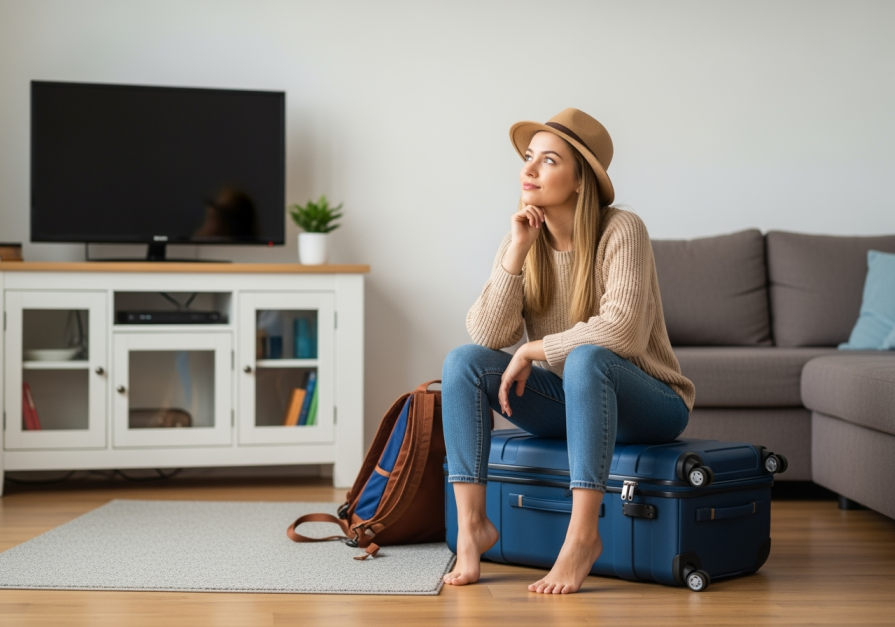It is very important to know and understand the peculiarities of the country you are going to, otherwise at least you can get into an awkward situation, at most you can earn a fine or even imprisonment.
We have collected a useful memo for you: what you should pay attention to if you are traveling abroad. Use it with pleasure and have a cloudless vacation!

Collecting information
- Visas. One of the main points: if you do not take into account visa issues, you simply will not enter a new country. Somewhere a visa is issued much in advance (USA, Canada, Australia, Great Britain), somewhere - at the border (Iran, Saudi Arabia, Sri Lanka, Egypt), somewhere you can do without it at all, but it is important to take into account the number of days spent - all the details are important.
- Registration. Not the same as a visa! In many countries, you are required to register upon arrival (say with the local police), sometimes you can check in at the hotel.
- Weather. Look at the forecast for the time of your trip, find a summary for the past few years, read forums to be prepared for any whims and changes. Take warm and waterproof clothes with you, even if you are going to hot countries - just in case.
The weather is more changeable in the tropical zone, near high water (seas, oceans, bays) - take this fact into account as well.
- Safety, crime rate. Of course, it is better not to go to countries with a high crime rate at all, but basic caution does not hurt in prosperous, "well-fed" places. Read on thematic forums which places or areas can be especially dangerous, where large tourist flows are especially attractive to pickpockets and scammers, what features specific countries have. For example, in Brazil, bags are often snatched from people who are waiting at a pedestrian crossing for a green traffic light. Make sure that you have valuables securely hidden/secured - money, phone, documents: a backpack, a crossbody or waist bag, a reliable lace / case around your neck or arm (there are even special anti-gravity mounts and carabiners so that the smartphone is not snatched from your hands - this, alas, Spain is notorious for). In crowded places, it is better to hang the backpack forward, on the stomach.
- Baggage and carry-on baggage allowances. In order not to pay exorbitant prices at the check-in counter, check in advance how much luggage you are allowed, what is allowed in hand luggage, what dimensions bags can be, etc.

Counting money
- At least roughly plan the costs. Start with the basics, without which the trip will not take place: tickets, transfer, insurance, accommodation. Consider the options of a particular trip: for example, if you are going to the mountains, be sure to count the ski pass, if you go on a cruise, do not forget about the fuel surcharge and mandatory tips. If you are going not just to lie on the beach, but on a cultural and educational trip, set aside part of the money for excursions: it is worth looking in advance what options the chosen place offers, and estimate how much money you need for guides and sightseeing buses. Some of these expenses can be closed in advance, a few months before the trip: for example, first buy tickets, then book accommodation, etc.
- Don't forget to save money for unexpected expenses! Just believe me: they will surely arise.
- Check currency exchange rates. All travelers already know that at the airport it is as safe as possible, but as unprofitable as possible. Now it is optimal to travel with dollars or euros: you go abroad with them (be careful about the rules for the export of currency, limits and declarations!), and then you exchange them for local money, if necessary. Forums and reviews of other travelers often help you navigate where the exchange rate is the most favorable.
- Will there be a tourist tax? More and more countries are gradually introducing it, so the issue is relevant. Somewhere it is already included in the price of housing, somewhere it is paid separately, but together with check-in, somewhere it is valid only in the high season or in a separate, most popular location - the rules are different.
- Have different payment methods ready. If you travel abroad often and/or for a long time, it makes sense to apply for a foreign plastic card. In many countries and tourist regions, you can pay with a QR code (which is very convenient).
Medicine & Health
- Get mandatory vaccinations if required by the destination country. We seem to have moved away from the COVID-19 panic, but the strict vaccination check when visiting Africa or South America (for example, against yellow fever) has not gone away.
- Be sure to take out health insurance! Believe me, you will definitely not like to be sick abroad - and it will certainly ruin the family budget. In addition to total savings, a medical policy will give another important bonus: you will definitely be able to get medical care in a good clinic, from an English-speaking doctor, and not rush around the local clinic, frantically translating every word on the signs.
- Take care of your own medications and prescriptions. If you constantly take some prescription drugs, do not expect to buy them (or an analogue) abroad: take everything you need with you, preferably with a small margin. Ideally, accompany each drug with a prescription or recommendation from a doctor so that there are no problems at the border.

Communication and communication
- It is always a good idea to learn a couple of the most common phrases and words in the local language: "Hello", "Please", "Thank you", "Help me". This will not only come in handy - it will make the locals more friendly and hospitable to you: usually the locals are very happy and grateful that travelers show respect for their country by learning at least a couple of words.
- Find a translation app that works best for you. Many of these applications for smartphones work even without the Internet, most also offer translation from a photo: point the camera at a sign, sign or menu and get at least an approximate, but translation. Very convenient!
- Take care of roaming. You can connect roaming with your home operator (although usually it is very expensive, be careful), you can issue an electronic SIM card, you can buy a local SIM card (if such are issued for tourists), you can issue a universal sim (for example, Drimsim) - the choice is yours.
Navigation and transport
- Download online maps that work offline. Almost all self-respecting navigators already have this option, so we will not recommend a specific program here.
- See what the public transport situation is like in the selected city or country. There are cities where public transport works perfectly and without interruptions (Tokyo, the bus system in London, S-Bann in Germany), but somewhere it is terribly inconvenient (many Asian countries) - it will be easier for you to take a taxi or rent a car. Remember that there are often cheap travel cards for public transport (Oyster Card in the UK, daily passes in Tokyo) - it may be convenient for you to use them.
- Are there any peculiarities of traffic? The most striking example is left-hand traffic in Japan or the UK: it is very difficult to get used to it! In Egypt, there are practically no traffic rules, everyone drives as they want, in Thailand and India, the traffic on the roads is also very chaotic, it will confuse almost any driver.

Culture, mentality, behavioral features
- Clothing. In Muslim countries, the body (especially for women) should be closed, preferably at least to the elbow and ankles, and the clothes should not be tight-fitting, emphasizing the curves of the figure. Even in Turkey, you need to understand that you will not go to the mosque in shorts.
- Take into account the peculiarities of different countries. These are point details, very "bottlenecks", characteristic of each country separately, but they must be taken into account in order not to get into trouble. For example, in Thailand it is forbidden to touch someone's head and step on paper bills (they have the image of the monarch on them, so it is considered almost treason), in Japan they do not like it when they make noise in public transport - it is customary to be silent and observe silence there, in Arab countries it is not recommended to hug and kiss in public (even hold hands), in Brazil and Turkey you cannot show the "okay" sign.
- Check legal restrictions and local laws. The paragraph is closely intertwined with the previous one, but for some restrictions you will not just be scolded, but fined or, what is good, locked up in prison. For example, it is forbidden to export corals (even a piece!) from Egypt, seemingly harmless chewing gum is banned in Singapore, alcohol is banned in many Muslim countries – it is available for purchase and consumption only inside tourist areas, in hotels. Be careful!
And a couple more little things
- Don't forget the power bank! It will definitely come in handy.
- Important documents are better copied, tickets and reservations are printed, and everything important is at least photographed and uploaded to the cloud. The paper version will come in handy if you lose the original or your smartphone dies.







